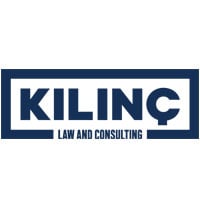
Legal counsel | Novartis Sağlık, Gıda ve Tarım Ürünleri Sanayi ve Ticaret


Elif Dalga
Legal counsel | Novartis Sağlık, Gıda ve Tarım Ürünleri Sanayi ve Ticaret
What has been the number one challenge that has impacted you over the past year?
The entire company and the legal team have changed dramatically in the past year. We all had to adapt quickly to various work and problems with a hand-zone approach. This has helped us to work closer with our team and business partners more than ever before, understanding all the company’s business in full depth, becoming excellent business partners by being incredibly present and visible to our business partners and creating a much more refined working order.
Can you outline your role in the legal function of your organisation and any significant cases or transactions you were involved in?
Some of the most significant cases I was involved in include strategic patent litigation and administrative legal actions, ensuring compliance with our tenders and various antitrust issues, implementation of big global simplification projects, active participation in the regional digital working groups, clinical research and trial projects, digitalisation of our interactions with our stakeholders including healthcare professionals and continuous compliance agenda with the evolving data privacy laws.
Besides, with our goal of being the business partner of choice as a legal team within Novartis, we continuously support our business functions in their day-to-day operations with an innovative approach in parallel with the rapidly changing market conditions and legal landscape. We also design and run an internal educational series to equip colleagues from non-legal functions with a good level of legal reasoning and knowledge that they can implement in their work and personal lives.
In what ways do you see the in-house legal role evolving over the next few years?
In this new and digital age, legal teams are more curious than ever and determined to keep up with the rapidly changing conditions every day.
Alongside the ethical issues that we have put on our agenda globally for the past years, an increase in the effective use of artificial intelligence will force in-house lawyers to be more refined and work with their business teams more than simply a function that imposes rules. For this reason, in-house lawyers should be the ones who guide their business teams, sharing our ‘reasoning’ skills with them. We need to make people ask questions; we are trained to exercise this thinking process and use it daily in everything. And sharing this skill set with everyone will be more valuable from now on.